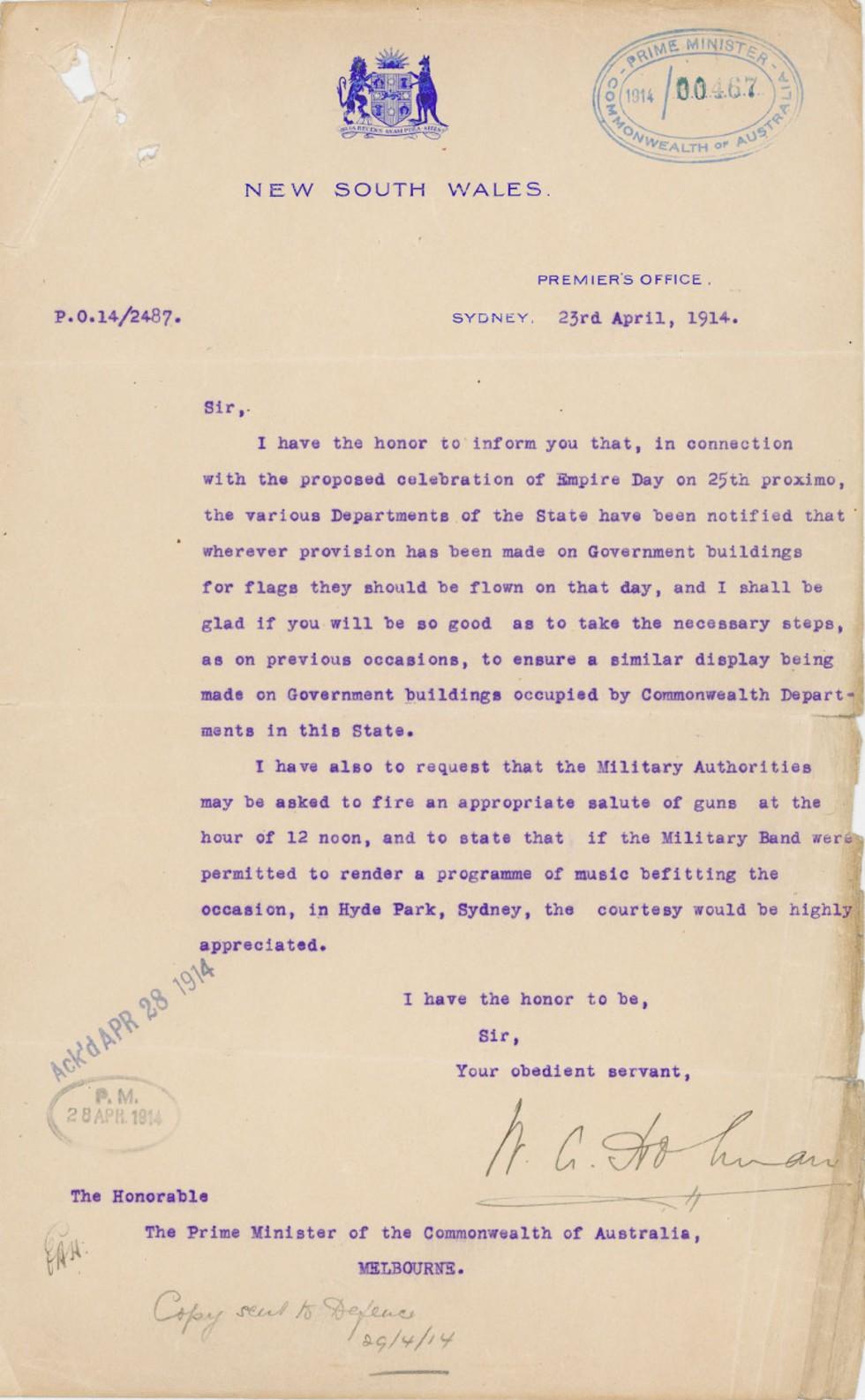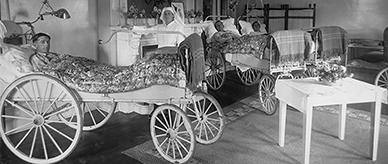


Transcript
[Letterhead in blue ink, with the coat of arms of NSW, and the words 'NEW SOUTH WALES', 'PREMIER'S OFFICE', 'SYDNEY'.]
[Stamp in top right corner in blue ink 'Prime Minister – Commonwealth of Australia' '1914 / 00467']
P.0.14/2487.
23rd April, 1914.
Sir,
I have the honor to inform you that, in connection with the proposed celebration of Empire Day on 25th proximo, the various Departments of the State have been notified that wherever provision has been made on Government buildings for flags they should be flown on that day, and I shall be glad if you will be so good as to take the necessary steps, as on previous occasions, to ensure a similar display being made on government buildings occupied by Commonwealth Departments in this State.
I have also to request that the Military Authorities may be asked to fire an appropriate salute of guns at the hour of 12 noon, and to state that if the Military Band were permitted to render a programme of music befitting the occasion, in Hyde Park, Sydney, the courtesy would be highly appreciated.
I have the honor to be,
Sir,
Your obedient servant,
[Handwritten signature, illegible]
[Addressed to:] The Honorable
The Prime Minister of the Commonwealth of Australia,
MELBOURNE.
[Stamped in black ink:] P.M. 28 APR 1914
[Stamped in blue ink:] Ack’d [acknowledged] APR 28 1914
[Handwritten annotation at the bottom of the page:] Copy sent to Defence
29/4/14
About this record
This letter from New South Wales Premier William Holman to Prime Minister Joseph Cook, dated 23 April 1914, outlines the arrangements being made for the official celebration of Empire Day in Sydney the following month.
Need help with your research?
Learn how to interpret primary sources, use our collection and more.

